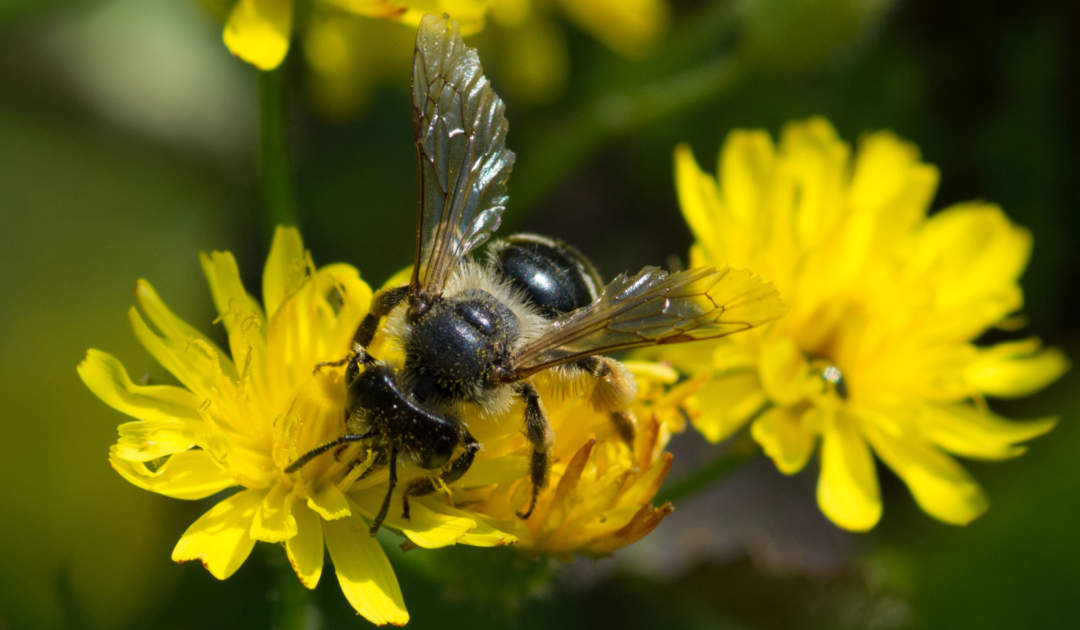Potential to adapt is revealed by evolutionary genomics
Genome allows faster prediction of winners and losers of climate change
Presenting a new research approach, scientists of the Senckenberg and the LOEWE Centre for Translational Biodiversity Genomics hope to make faster and more reliable predictions regarding animal and plant species’ responses to global climate change. According to the researchers, reading the respective species’ genome can tell all the necessary information. Combined with ecological data, the results are especially relevant for conservation. The team therefore advocates initially concentrating on species that play a particularly important role in their respective ecosystem. The study has just been published in the scientific journal “Evolution Letters”.
Global climate change is going to drastically alter the environmental conditions for humans and nature. Animals and plants unable to cope with the new conditions are thus forced to shift their range to different areas or to adapt genetically. Otherwise they are in danger of extinction. Mobile species such as birds can change their migration routes and colonize new, more suitable habitats. Earth worms, on the other hand, are much more stationary and therefore heavily rely on adaptation. However, in most cases the actual reaction of a given species has not been clarified to date.
An international team led by Senckenberg scientists and members of the LOEWE Centre for Translational Biodiversity Genomics intends to revolutionize these predictions with a new research approach. Their method involves studying the genome to deduce the amount of leeway available to a given species for genetically adapting to new environmental conditions. This information can then be combined with other data, e.g., regarding the expansion potential or global warming, to form so-called eco-evolutionary prediction models.
“Species are in a continuous state of evolution. Therefore, we cannot just simply project a species with its current properties into the future; rather, we must consider to what extent the species is able to adapt or undergo evolutionary changes. As long as we ignore this potential, predictions about the way species will react to climate change do not reflect what can actually happen. By combining genomic and ecological data, we can therefore significantly improve these prediction models,” says the study’s supervisor Prof. Dr. Markus Pfenninger of the Senckenberg Biodiversity and Climate Research Centre and the LOEWE Centre for Translational Biodiversity Genomics in Frankfurt.
The extent to which a species changes in the course of evolution depends on the genetic diversity of its genome, the size of the population in a particular area, and the genetic exchange between different populations. Using modern technologies and computing approaches, it is possible to decode the genome of each species and to assess its long-term evolutionary adaptation potential.
“This allows us to make faster predictions regarding the winners and losers in view of climate change and to initiate the necessary conservation measures before it is too late for many species,” explains Senckenberg researcher Dr. Ann-Marie Waldvogel, lead author of the study. “However, it is unrealistic in the short term to genetically analyze all animal and plant species worldwide. We should therefore initially concentrate on species that are of special importance to their respective ecosystem. Among others, this includes many species of bees that, as pollinators, play a significant role in the preservation of all terrestrial ecosystems.”
The researchers view the new approach as an important tool for science and society. Waldvogel comments, “Our methodological framework can serve as a guideline to other researchers and help them to select suitable species, methods and types of analyses for research projects concerning genomic climate adaptations. By further bundling scientific resources and results more efficiently, we will be better able to cope with the effects of climate change. After all, prediction models form the basis for political decisions and conservation concepts.”
But first it will be necessary to collect additional data for a multitude of different species. “To date, we only know the genomic adaptation potential of a few model organisms. To be able to assess which species are threatened by climate change we clearly need much more comprehensive studies. Single scientists can hardly manage this task. We require large-scale consortia and the assistance of the public, e.g., in collecting sample material. With new technologies and online analysis platforms we can evaluate the large quantity of data practically in real time. The methodological building blocks required for our research approach already exist – all we need to do is assemble them and finally start collecting data,” adds Pfenniger in summary.
Publikation in Evolution Letters: „Evolutionary genomics can improve prediction of species’ responses to climate change”https://onlinelibrary.wiley.com/doi/10.1002/evl3.154
The LOEWE Centre for Translational Biodiversity Genomics (TBG) is a joint research institution of the Senckenberg Society for Nature Research, the Goethe University Frankfurt, the Justus Liebig University Gießen and the Fraunhofer Institute for Molecular Biology and Applied Ecology IME. The centre is initially funded by the Hessian State Initiative for the Development of Scientific and Economic Excellence (LOEWE) and started operations in January 2018. The central focus is on expanding biodiversity research into the genomic basis of biological diversity. The findings are available for basic and applied research. The aim is also to combine basic research on the genomes of a broad variety of organisms with the development of applicable services and products.
Further information: https://tbg.senckenberg.de/

